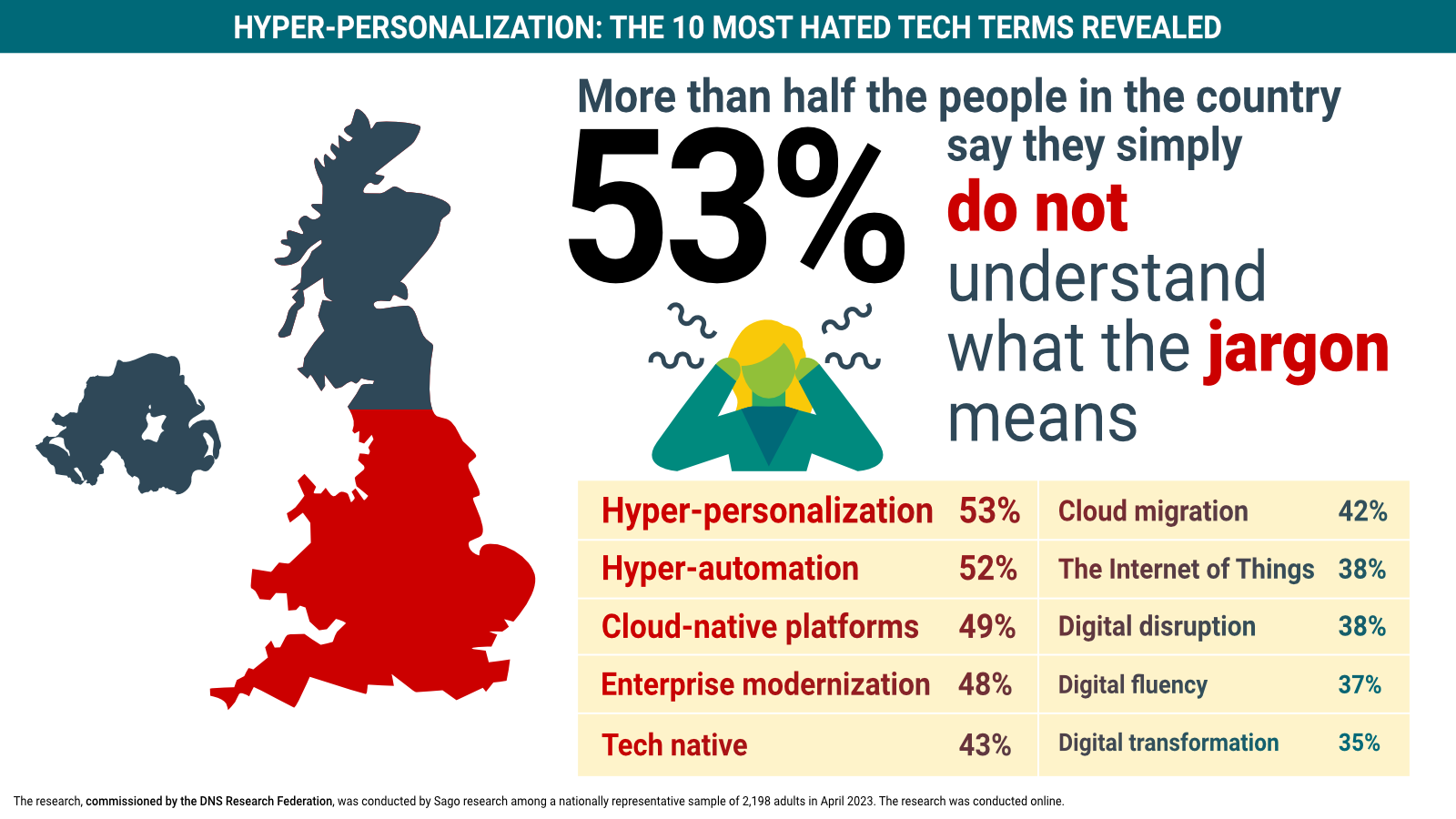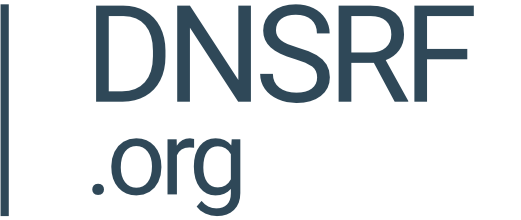Hyper-Personalization: The 10 most hated tech terms revealed

“Hyper-personalization” has topped the list of the most irritating tech buzzwords being used at the moment, according to new research by the DNS Research Federation. More than half the people in the country (53%) say they simply do not understand what the jargon means, and are annoyed when they hear or read it.
The word narrowly pipped “Hyper-automation” and “Cloud native platforms” to poll position, which annoyed 52% and 49% of the UK overall respectively.
At a time when a recent study has shown jargon is more likely to be used by someone as a means of elevating their status, and to make themselves feel superior 1 , the new poll of over 2,151 people across the UK (nationally representative) revealed the level of irritation felt by ordinary Internet users about tech jargon used, and highlighted a growing rift between Internet consumers and Internet controllers.
The top 10 most irritating tech buzzwords
1 Hyper-personalization 53%
2 Hyper-automation 52%
3 Cloud-native platforms 49%
4 Enterprise modernization 48%
5 Tech native 43%
6 Cloud migration 42%
7 The Internet of Things 38%
8 Digital disruption 38%
9 Digital fluency 37%
10 Digital transformation 35%
The findings showed that, more broadly, 89% of consumers in the UK had an issue with one or more tech buzzword. One in five people (19%) said they could not stand any of the tech buzzwords in the survey.
Women particularly anti tech gibberish
Looking closely at different cross-breaks in the survey, the answers revealed different levels of frustration that existed. While one in 10 (10%) women in the survey said there were no issues with any of the terms, a considerable one in four (24%) said they could not stand any of them. This figure was almost twice the proportion of men (14%). This comes at a time when the tech sector is trying to attract more women to enter into the industry.
Similarly, older respondents were as much as three times as likely to tick ‘All of the above’ as younger ones (32% of over 65s vs 9% of under 25s). By region, Northerners (21%) and people in the Midlands (21%) were more likely to have an issue with any buzzwords, compared with those in London (15%) or Scotland (15%)
Emily Taylor, Chief Executive at the DNS Research Federation commented: “Since the words ‘You are not expected to understand this’ appeared in 1975 in the source code of Unix’s sixth edition, they have become a badge of honour for programmers everywhere – appearing on t-shirts, mugs and jumpers across the land. The gap in knowledge and understanding among people who use the Internet has widened exponentially over the years, and has increasingly become a moral issue. Technical jargon is a barrier for most ordinary people, distancing them from understanding the ways in which the digital revolution is affecting our lives and societies. For most people, technology is now akin to magic. It’s important to break down the language barriers that are excluding people from the conversation and preventing the right questions from being asked.
“The fact high proportions of different groups have switched off altogether from tech jargon is a concern. There is every reason for anybody to try to understand the jargon for themselves, and for Government to equip them with the skills needed in the 21 st century.
However, tackling complex problems starts by speaking in simple, plain terms. This is the first step in protecting the future of the free and open Internet.
For more information on DNS Research Federation or to request interviews with Emily Taylor, contact:
elephant communications
Guy Bellamy / Jim Follett- elephant communications
07766 775216 / 07908 551571
Guy@elephantcommunications.co.uk
Jim@elephantcommunications.co.uk
Notes to editors
The research was conducted by Sago Research Group UK for DNS Research Federation in
April 2023 among a representative sample of 2,151 adults.
About the DNS Research Federation
The first organisation of its kind, The DNS Research Federation is a not-for-profit organisation that sits at the intersection of policy and technology. With a mission to advance the understanding of the Domain Name System's impact on cybersecurity, policy and technical standards, the Federation funds research, engages in technical standards, and brings technical tools and objective data relating to the internet's unique identifier systems - especially the DNS - to researchers, public safety and industry stakeholders.
Exploring the linkages between traditional internet governance, the strategic importance of technical standards, and contemporary policy challenges, the DNS Research Federation connects up islands of scholarship and communities of expertise. The Federation gives a voice to the data and is inviting collaboration and partnership from key stakeholders from all aspects of the DNS ecosystem to participate as partners and supporters.


